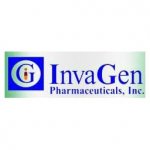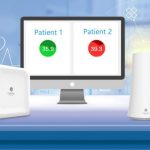BioNTech has announced the addition of two new antibody-drug conjugates (ADCs) for solid tumors to its portfolio as it refocuses on its first ambition—cancer therapeutics. The German company will pay $170 million upfront for rights to two of Duality Biologics’ topoisomerase-1 inhibitor-based ADCs. DualityBio stands to receive more than $1.5 billion in milestone payments for the two assets, plus tiered royalties on net sales. ADCs combine the power of chemotherapy with the selectivity of antibodies and have gained traction as potent cancer therapies. BioNTech’s COVID-19 partner, Pfizer, invested $43 billion in the space with the March 2023 acquisition of Seagen.
BioNTech is refocusing on its first ambition—cancer therapeutics. Monday, the German company announced the addition of two new antibody-drug conjugates (ADCs) for solid tumors to its portfolio.
Shanghai-based Duality Biologics will receive $170 million upfront for rights to two of its topoisomerase-1 inhibitor-based ADCs. The lead candidate, DB-1303, is directed against human epidermal growth factor receptor 2 (HER2), a target overexpressed in a wide range of cancers causing aggressive growth and spread.
DB-1303 has already received Fast Track designation from the FDA and is being assessed in a Phase II trial for solid tumors expressing HER2. The trial is slated to be completed in October 2025.
Want to publish your own articles on DistilINFO Publications?
Send us an email, we will get in touch with you.
The second asset, DB-1311, is in preclinical development to treat a range of tumor models across multiple cancer types.
In addition to the upfront payment, DualityBio stands to receive more than $1.5 billion in milestone payments for the two assets, plus tiered royalties on net sales. DualityBio will hold commercial rights in mainland China, Hong Kong and Macau, while BioNTech will take the rest of the globe. DualityBio retains the option to exercise co-development of DB-1311 in the U.S. market.
ADCs, which combine the power of chemotherapy with the selectivity of antibodies, have gained traction as potent cancer therapies. In a 2022 paper published in Nature, Yu Zhang et al. called ADCs the “biological missile” for targeted cancer therapy. Over a dozen are currently on the market.
In a statement, Ugur Sahin, CEO of BioNTech, said the ADC drug class “might be an alternative to standard chemotherapy.”
BioNTech’s COVID-19 partner, Pfizer, invested $43 billion in the space with the March 2023 acquisition of Seagen. The deal brought four approved cancer ADCs into Pfizer’s commercial lineup and added next-gen tech for ADCs and other antibody platforms to its R&D efforts.
Monday’s licensing agreement with DualityBio is BioNTech’s second this year. In March, the company inked a licensing and collaboration deal with OncoC4 to develop and commercialize its investigational anti-CTLA-4 antibody ONC-392 for solid tumors.
The Maryland-based biopharma received $200 million from its German partner with milestone and royalty payments on the line.
A BioNTech spokesperson told BioSpace the company plans to continue to invest heavily in R&D and is willing to invest in synergistic mergers and acquisitions as well as collaborations to supplement and strengthen its technologies and capabilities.
After a massive uptick from its partnered COVID-19 vaccine, BioNTech stock has dropped steadily the past 17 months, down 64% since November 2021.
Update (April 3, 2023): This story has been updated from its original version to include a comment from BioNTech.
Most Read Today
- Gene Editing Therapeutics Could Hit the Market in 2023
- FDA Action Alert: Alvotech, Otsuka and More
- GC Genome Announces Publication Demonstrating Feasibility of Liquid Biopsy Technology to Predict Radiation Therapy Response in Solid Tumors
- Syncell Showcases Pioneering Microscopy-Guided Subcellular Protein Scooping Technology at the AACR Annual Meeting 2023
- HCmed Appoints New Chief Scientific Officer
Source: BioSpace








